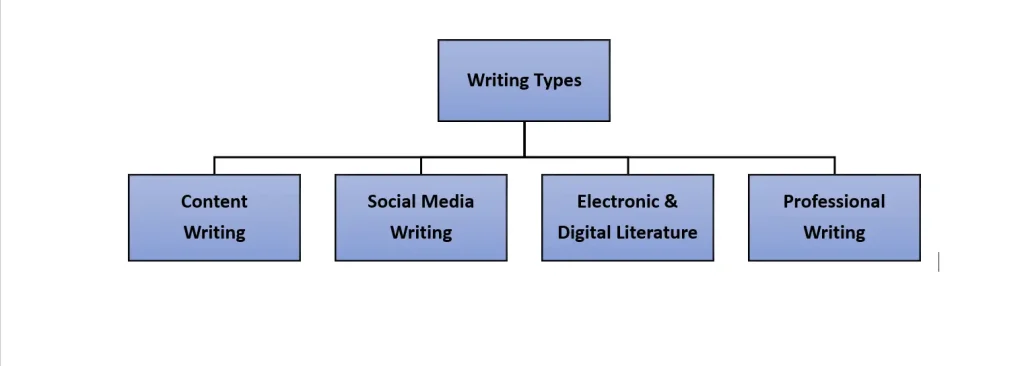How to Sharpen Your Writing Skills in the Digital Era
When you look back in time, there were no computers, no databases, no creative writing, and no digital tools. All the writers could do was rely on their imagination. But today, writers have endless tools for creative writing.
For instance, now they have grammar checkers, AI-powered assistants, and whatnot. This means the standards of producing content have completely changed, though there are strings attached. We call it the universal problem:
Content Overload Crisis
It means there are so many different writings on the internet that it eventually becomes a task to mark your mark as an author. Don’t worry, you are in the right place. This blogs offer some tried and tested academic writing tips. So, keep reading.
Demand Online Attention with Your Sharp Writing Skills
A few of you might remember how the world was before being digitalized. Retrieving information used to be a back-breaking task, as the only way to access data was by either waiting for the newspaper or going to a library. However, soon the tables flipped, and now you can find almost any sort of content instantly on your screen. This thoroughly elevated the writing scene, which is why everyone needs to sharpen their writing skills. Some experts also recommend hiring Proofreading Services in Canada in order to make every draft flawless.
However, before we jump to the academic writing tips, here is a quick review of different types of writing. These are all the popular forms that an individual might have to compose in the digital era.

Content
- Blogs and articles
- Website copywriting
- Email marketing
- SEO writing
- E-books
Social Media
- Microblogging
- Captions
- Posts
- Viral content
- Social media marketing
Professional
- Email/instant messaging
- Technical writing
- UX writing
- Online journalism
- Public relations
Digital Literature
- Hypertext fiction
- Interactive fiction
- Generative fiction
- Digital poetry
- Fan fiction
- Research journal
Any writing work that you do in 2025 is likely listed above. Let’s explore how to write it more skillfully using the progressing technology and writing techniques advised by specialists.
7 Tips on How to Improve Creative Writing Skills

1. Use Voice-to-Text Feature
The first trick is NOT to work hard. Yes, why waste time and energy when you can act smart and use them somewhere more worthy? Great, so begin by speaking your ideas out loud and using voice-to-text tools to help you write. It makes you write in the way you naturally talk. This approach can also alleviate the pressure of perfect grammar, leaving your thoughts to flow freely.
It works because:
- You become trained to write with clarity.
- You develop a more conversational tone.
- Your writing becomes more authentic and engaging for readers.
2. Study Viral Captions & Tweets
If you are new to the field, don’t worry. The short-form content, like tweets are master class of creative writing and grabbing attention fast. They use emotion, surprise, and clever structure to make an impact in just a few words. So, it is advised that you analyze the short content and learn how to say more with less.
It works because:
- It teaches you to be concise and punchy.
- You learn how to hook readers quickly.
- Your scripts turn out to be more impactful.
3. Always Micro-Edit
The third of seven effective writing tips is about editing. Whether you are author to a book, a CV, or a research paper, it is important that you always use the micro-editing approach. In it you review your writing in small, focused intervals. You can also use the latest technologies to do it, such as downloading the Grammarly extension.
It works because:
- It replaces the need to hire professional Academic Proofreading services.
- It lets you spot weak transitions, awkward phrasing, and unnecessary fluff.
- You write with greater control and confidence across any digital format.
4. Write for Screens, Not Pages
Digital readers are known to only skim the content, instead of scrolling slowly like a book. Hence, it becomes necessary to use short paragraphs, clear headings, and visual breaks. This is the only way an individual will read your writing.
It works because:
- There is less clutter in the final draft.
- This trick helps you to prioritize structure.
- Your content grows more readable.
5. Use Real-Time Feedback Tools
The next in line, one of the best academic writing skills, is the smartness of using real-time tools. Yes, very few people are open to it, but experts say it dramatically sharpens a piece of writing. For instance, you complete a blog, publish it, and then run the feedback tools on it. Not just will your mistakes reduce, but you will also learn what works and what doesn’t.
It works because:
- It makes you self-aware
- You learn to adjust tone for different audiences.
- Your sentence structure improves.
Practice ‘Constraint Writing’
The sixth tip is a part of the English language techniques. It is called constraint writing, and it means to set odd rules for yourself, like writing without a certain letter, or only using questions. These creative limits force your brain to find new paths as well as learn to work with unexpected word choices. This also brings out the originality in you.
It works because:
- The approach enables switch off your autopilot mode.
- Your creativity solves writing problems.
- The sentence range and vocabulary keep developing.
7. Collaborate with AI for Idea Generation
Finally, use AI tools to brainstorm plot twists. And not just this, you can try various other things, like define character traits or ask for dialogue starters. Hence, treat it like a creative partner that helps you explore directions you might not have considered on your own.
It works because:
- It allows you to overcome writer’s block.
- AI can challenge your thinking, bringing in fresh ideas.
FAQs
How do I write engaging content for short attention spans?
You can start by using short sentences, clear ideas, and strong headlines. Moreover, you can also break your content into small chunks or use lists to keep the reader engaged.
What role does tone play in online writing?
Initially, the tone sets the mood and builds trust. It then helps readers feel connected. So, whatever your tone is, ensure it aligns with your audience and message.
How do I avoid sounding too robotic or generic?
The best tip, which is also backed by evidence, is that you should write like you talk. This means you need to use natural language that adds personality to the draft. Also, try sharing real emotions and asking questions. This helps you sound more relatable to your reader.
Can AI tools help me become a better writer? If yes, how?
Yes, using artificial intelligence for support is not a crime. It gives you better words. It fixes the grammatical errors and also makes researching 10x more convenient. Hence, a lot of time is saved, and you get to focus on more significant aspects.
The Bottom Line
The answer is simple. With the use of fresh and cutting-edge writing tips, anyone can sharpen their skills in the digital era. So, no matter what you write: research articles, blogs, social media posts, assignments, resumes, or white papers, one thing is constant. You must do it smartly.
The manual labor to complete a draft is so outdated. It is the era of digitization. Download Grammarly, use Excel, and maybe explore AI writing assistants to plan your content. Also, save this article for the future because it is going to save a lot of your time.
